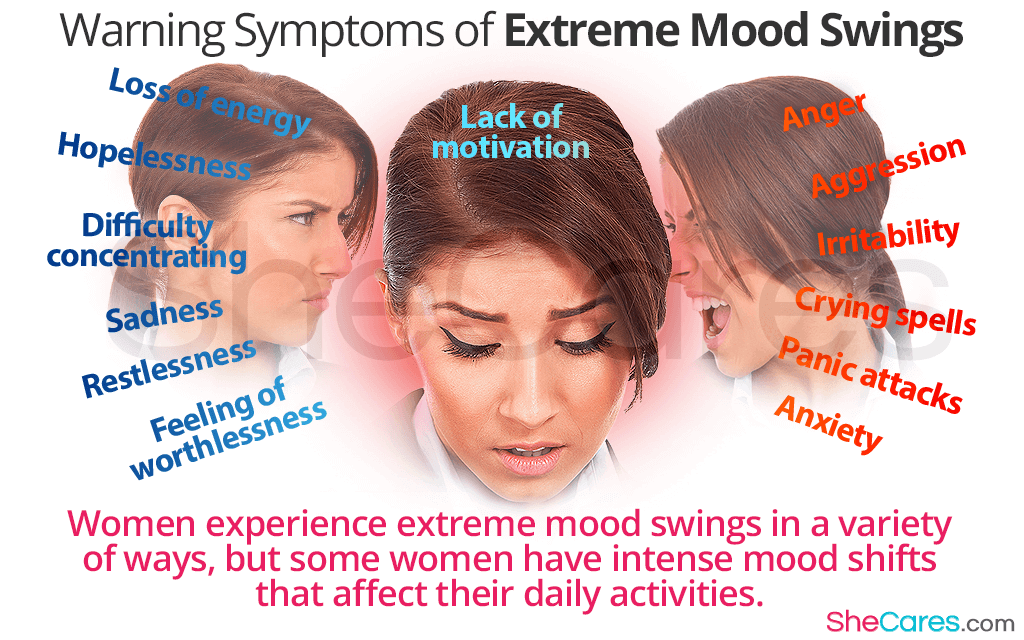Mood swings are a familiar occurrence for most women, because they accompany them throughout their life. Their severity varies and can be dictated by several factors, such as women's sensitivity to hormonal fluctuations, their overall health, or emotional stability.
Extreme mood shifts, however, can significantly disrupt women's daily activities and their self-esteem. Keep reading to learn about extreme moods swings, their warning symptoms, and when is it time to ask your doctor for help.
About Extreme Mood Swings
Severe mood swings are sudden changes in mood, characterized by heightened and exaggerated states, as well as low and depressive modes, often occurring in close proximity. Because they are so unpredictable, they frequently leave women feeling exhausted and confused. They can also impair women's ability to perform at their best at work and tend to complicate their interactions with other people.
The Warning Symptoms of Extreme Mood Swings
The most common symptoms of major mood swings can include one or several of the following:
- Irritability
- Anger
- Aggression
- Anxiety
- Panic attacks
- Uneasiness
- Restlessness
- Sadness
- Crying spells
- Hopelessness
- Lack of motivation
- Loss of energy
- Difficulty concentrating
- Feeling of worthlessness
Women experience extreme mood swings in a variety of ways.Some women have infrequent episodes, while for others, intense mood shifts are an everyday reality. Sometimes they last for a few minutes and a woman can go on with her day, but other times, mood shifts can stretch over several days.
When to See a Doctor?
While mood swings are a natural part of being a woman, extreme mood fluctuations that inhibit your abilities to function as you normally would, should be reported to your doctor. Prolonged and persistent states of anxiety or panic can have detrimental effects on your body and mind, whereas sadness and hopelessness put you at risk for developing clinical depression.
If your extreme mood swings make you feel tempted to hurt yourself or others, they require an immediate medical assistance. Help is available locally, as well as via numerous free suicide helplines.
Severe mood swings are a serious life disruption. Depending on their cause, there are effective ways to manage them. Several natural therapies, lifestyle changes, and medications can help you re-gain control over your emotions. You might be interested in reading more about mood swings, their causes and treatments to better understand this difficult, but common condition.
